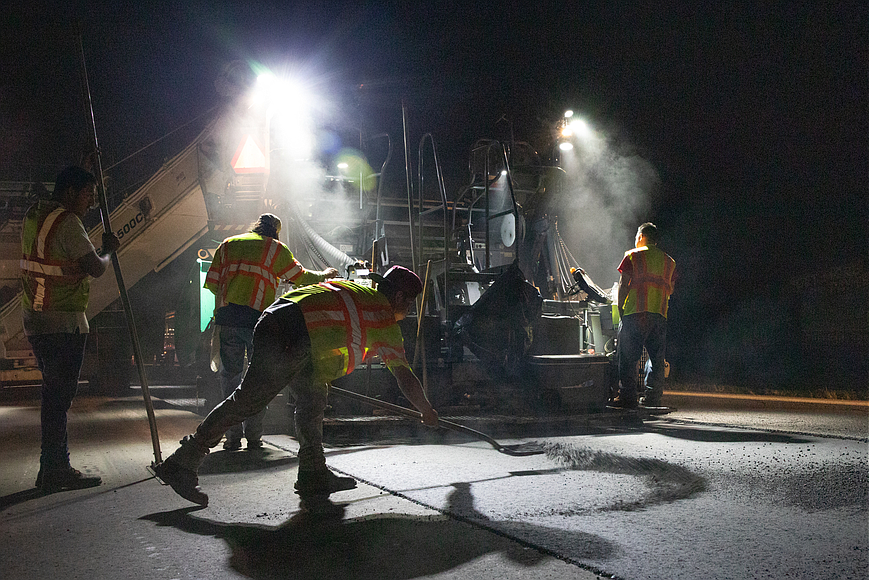- April 26, 2024
-
-
Loading

Loading

From 2002 to 2011, Palm Coast resurfaced 50 miles worth of its roadways each year. Starting in 2012, that number dropped down to 10. Is that enough? The city government may pay a consulting company $160,450 to shoot lasers at city streets to find out.
"It is really the best program to scientifically go around and identify which roads need to be resurfaced, and in what order."
— CARL COTE, Palm Coast Stormwater and Engineering director
The company, called Transmap, assessed the city's roads in 2017, using pickup truck-mounted panoramic cameras and laser remote sensing equipment to measure the pavement and assign scores along a range from from 0 (for a road that's functionally nonexistent) to 100 (one that's newly paved).
The city's roads averaged a 79: a solid "satisfactory" rating, one rank below the top rating of "good."
"We fall in line, above the middle of the pack ... with a lot of other entities that they were working with," city Stormwater and Engineering Director Carl Cote told City Council members at an Aug. 10 workshop.
But it's time to reassess, he suggested. Palm Coast has 540 centerlane miles of roadway. Of those, 74 are arterial and collector roads.
Before Transmap, Cote said, the city had evaluated its roads with "drive-by" inspections, an arduous approach that introduced the risk of inconsistency in evaluators' assessments. The Transmap equipment's precision eliminates that problem, Cote said.
City Councilman Nick Klufas praised the tech-based system.
"In my opinion, it's a far superior way to measure data because of the consistency that you get," Klufas said. With the manual survey method, he said, "If you don't have the same person, you're going to have different playing fields."
Cote said the Transmap system can determine, based on the types and sizes of cracks in the roadway, whether the roads have road base failures or pavement failures, and how quickly they're likely to deteriorate. That makes it easier for staff to prioritize which streets to repair.
But since the city's 10-year half-cent sales tax program for street resurfacing ended in 2012, the city has started falling behind, Cote said.
"We've really had no dollars to resurface our roads," aside from very limited street maintenance money, he said. "... With our current funding, we're short."
A new Transmap survey, he said, would help the city determine how much money it needs to dedicate to keeping its roads in acceptable condition.
"This will help us reassess what we've done to date, and where we need to go," Cote said. "... From there, we can come back to council with that new information and have a long-range plan," including how much money is needed and what funding sources are available.
The City Council will make a decision on the Transmap proposal at a future business meeting.